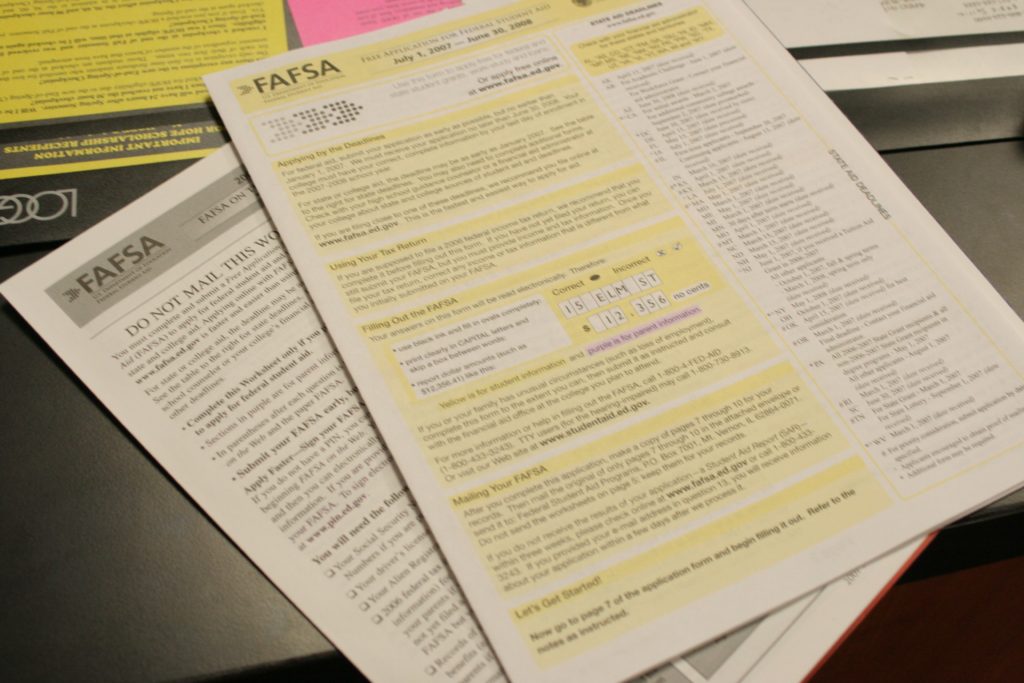56% of college seniors have four or more credit cards.
Let that sink in for a moment.
At first, this statistic baffled and confused me. With two credit cards, I feel like an oddity amongst the people I know. I’m a college senior, but I can only think of a handful of my friend that even have one credit card, let alone four!
But then it hit me – I have a biased point of view. My school does not allow credit card companies to set up tables on campus. There’s no one here hawking out free T-shirts, Frisbees or candy bars in exchange for all of your personal information.
This is purely anecdotal, but from what I’ve seen, not allowing credit card companies on campus severely cuts down on the number of credit cards that students have. It also cuts down on the number of students that get into debilitating credit card debt while in school.
An advisor at one major university says that more students drop out due to problems with credit card debt than academic disqualification. Dr. Robert Manning, a professor at my school and author of the book Credit Card Nation, says that between 7 and 10 percent of college students will drop out of school because of credit problems.
But at my school, this is pretty unheard of. When I dropped out due to a combination of credit card debt, student loans, and unhappiness in my major, people were shocked. Many people had never heard of someone leaving RIT because of money problem. In fact, it was so odd, the school magazine wrote a cover story about me dropping out!
So why do other schools allow credit card tables on campus? Simple answer: money. The credit card companies pay the school to be there – sometimes big bucks for big schools.
College students who accept cards from on-campus marketers are likely to be more indebted than those who obtain cards through other means, yet they are also likely to believe that the card issuers are more reputable because they have been screened by the college.
– http://www.the-american-interest.com/ai2/article.cfm?Id=458&MId=20
I can tell you why that is – students who seek out credit cards off-campus (usually by applying online) know what we’re doing. We seek out a credit card with a better idea of what it is, why we need it, and how to use it responsibly. A student who applies for a credit card in exchange for a piece of swag is much less likely to know and understand that they are signing up for a monthly loan with a high interest rate.
There are two sides of the coin here:
On one side, I strongly urge universities to join my school in banning credit card companies from campus. Your students will be better for it, and your retention rates will increase.
On the other side, students need to educate and prepare themselves. I’ve never been an advocate of “credit cards are evil” – I liken them to guns, actually. Many people can responsibly own and use them, but it’s possible for them to do a lot of damage in the hands of someone irresponsible or uneducated about their use.
Don’t shoot yourself in the foot – learn about responsible credit card use, and get your free Frisbee elsewhere.

 Tax time is in full swing, and as usual, I’m sitting around waiting for my last few pieces of paperwork to come in so that I can do my taxes. Every year, I strive to get my own taxes, and my mother’s, done as quickly as possible so that I can fill out the Free Application for Federal Student Aid (FAFSA), a bane of my existence, in hopes of getting as much aid as possible (not that it has really helped in any of the previous years).
Tax time is in full swing, and as usual, I’m sitting around waiting for my last few pieces of paperwork to come in so that I can do my taxes. Every year, I strive to get my own taxes, and my mother’s, done as quickly as possible so that I can fill out the Free Application for Federal Student Aid (FAFSA), a bane of my existence, in hopes of getting as much aid as possible (not that it has really helped in any of the previous years).